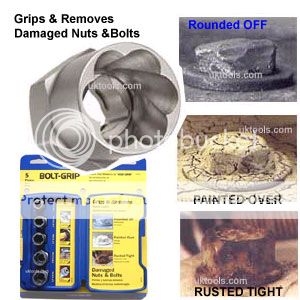I got a P5 from my father a couple years ago, and to be honest, I just let it sit -- I know, naughty, naughty...
Anyway, I decided to try to get it on the road about a week ago and have run into a number of issues:
1) Battery was dead, replaced the battery.
2) Front left brake was seized. I literally could not spin the front left wheel no matter what I did. I removed the caliper, sanded the rotor, and then put everything back together. Spins fine now.
3) Went to go move the car and the brake hydraulics felt like they had air in them. Still driveable, but not comfortable. Brought the car into the garage, took the wheels off, attempted to crack each of the bleed screws open, but the front right bleed screw snapped off. Replaced both front calipers.
4) Brake pedal actually felt like I was moving some fluid immediately prior to bleeding (this might have been my imagination). After starting bleeding the brakes went to nothing, and then stiffened up to about where they were prior to me replacing the calipers. Then they went to nothing (this might have been me letting fluid get too low in the reservoir) then they went back to what it was like prior to replacing the calipers. I went through 1 liter of fluid and had a helper. Pretty sure we did everything right (other than the one accident in the middle). Fluid coming out was pretty clear. Still seems like there is air in the system.
5) The "battery" (alternator) light comes on after the car has been running for a few seconds. Battery voltage with the car running was I think around 12.2V -- so it appears the alternator isn't working.
So the questions are:
1) What the heck do I do to get the air out of the brakes? I'm wondering if air might be stuck in the ABS system. I keep wondering why there isn't some way I can use the OBD2 port to command the ABS system to turn on (i.e. pump comes on, valves open and then just open the bleed screw to effectively pressure bleed the system with no work on my end.
2) Is there anything I can try before replacing the alternator? Any common failures (other than the alternator which might cause this?)
Anyway, I decided to try to get it on the road about a week ago and have run into a number of issues:
1) Battery was dead, replaced the battery.
2) Front left brake was seized. I literally could not spin the front left wheel no matter what I did. I removed the caliper, sanded the rotor, and then put everything back together. Spins fine now.
3) Went to go move the car and the brake hydraulics felt like they had air in them. Still driveable, but not comfortable. Brought the car into the garage, took the wheels off, attempted to crack each of the bleed screws open, but the front right bleed screw snapped off. Replaced both front calipers.
4) Brake pedal actually felt like I was moving some fluid immediately prior to bleeding (this might have been my imagination). After starting bleeding the brakes went to nothing, and then stiffened up to about where they were prior to me replacing the calipers. Then they went to nothing (this might have been me letting fluid get too low in the reservoir) then they went back to what it was like prior to replacing the calipers. I went through 1 liter of fluid and had a helper. Pretty sure we did everything right (other than the one accident in the middle). Fluid coming out was pretty clear. Still seems like there is air in the system.
5) The "battery" (alternator) light comes on after the car has been running for a few seconds. Battery voltage with the car running was I think around 12.2V -- so it appears the alternator isn't working.
So the questions are:
1) What the heck do I do to get the air out of the brakes? I'm wondering if air might be stuck in the ABS system. I keep wondering why there isn't some way I can use the OBD2 port to command the ABS system to turn on (i.e. pump comes on, valves open and then just open the bleed screw to effectively pressure bleed the system with no work on my end.
2) Is there anything I can try before replacing the alternator? Any common failures (other than the alternator which might cause this?)



